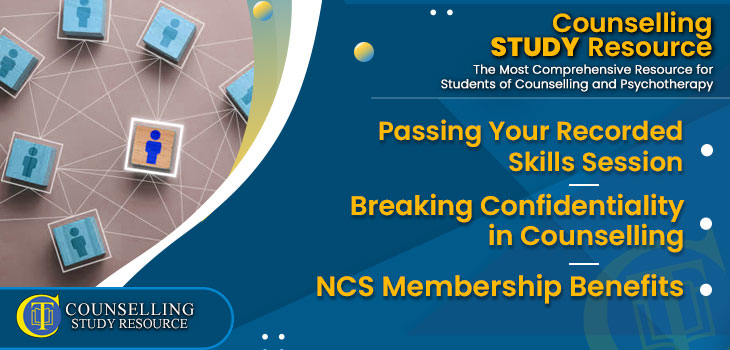See Counselling Skills Used in Real Sessions by Qualified Therapist
Real Sessions – Real Presentations – Real Skills
Gain the competence and confidence to use counselling techniques effectively!

In Episode 263 of the Counselling Tutor Podcast, your hosts Rory Lees-Oakes and Ken Kelly are back with this week’s three topics:
Recording Counselling Skills
Being assessed is a stressful time for any student, but in this section, Rory and Ken offer some tips that might help to take some of the pressure off:

Real Sessions – Real Presentations – Real Skills
Gain the competence and confidence to use counselling techniques effectively!
It’s likely that at least once during your practice you will be required to break confidentiality, and it’s important that you are prepared for this.
The key moments of this section include:

On-demand access to a rich lecture library covering theory, skills, and professional development for counselling students—Mapped to the UK awarding body criteria
“The Student Library has been BRILLIANT, I can’t recommend it enough!
It has been a lifeline in helping me prepare for practice and my first clients. If you’re considering it, go-for-it, it’s absolutely worth it!”
Kelly – Graduated and now in practice.
In this week’s ‘Practice Matters’, Rory speaks with Camilla Hyland and Kate Mahoney from the NCS (soon to be the NCPS) about the benefits of becoming an NCS member.
The main points of this discussion include:
Recording Counselling Skills

Get on-demand Certified CPD that is implementable in your practice
